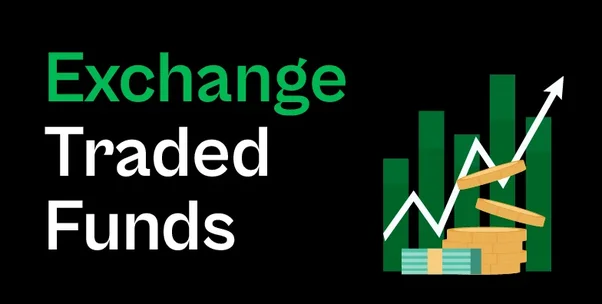You might discover that trading ETFs is more advantageous than trading stocks, depending on your investing goals, risk tolerance, and preferences. ETFs (Exchange-Traded Funds) and individual stocks each have benefits and drawbacks. To help you make a wise decision, consider the following comparisons:

Benefits of Trading ETFs
- ETFs offer immediate diversification by holding a variety of securities, which can help spread risk and give instant diversification. This may be very useful for investors who want to gain exposure to a specific market sector without buying individual stocks.
- Lower Risk: Through diversification, the risk of suffering a significant loss as a result of the decline of a single stock is reduced. Particularly more cautious investors will find this appealing.
- Lower Costs: Expense ratios for ETFs are frequently lower than those for actively managed mutual funds. This cost effectiveness may lead to better long-term returns.
- ETFs trade on stock markets similarly to individual stocks and have a lot of liquidity. Throughout the trading day, shares can be bought or sold at market prices.
- Because many Exchange-traded funds (ETFs) track indices, investors can invest passively in broad market trends or specific industries. This does away with the need for active stock selection.
- Investors can easily understand what they are investing in thanks to the daily holdings disclosures of ETFs.
The benefits of stock trading
- Better Return Prospects: If you invest in high-performing companies, individual stocks, which are riskier than ETFs, may provide better future returns.
- Ownership: When you buy individual stocks, you take complete ownership of the company. This may be intriguing to investors seeking a sense of involvement and ownership in particular businesses.
- Flexibility: When you trade stocks, you have the option of selecting the companies you believe have the best potential for growth or value appreciation.
- Dividends: Some stocks pay dividends, which over time may provide a steady source of income.
- Active Investing: If you enjoy reading about and analyzing businesses, stock trading gives you the opportunity to actively manage your investments based on your insights.
Decision-making factors to consider:
- Risk Tolerance: Investors who are risk averse may find ETFs appealing because they typically offer less risk due to diversification. Stocks carry a higher risk but also a higher potential reward for those willing to take on more risk.
- Investment goals: Pick between long-term growth, generating income, or combining the two. Which approach is most effective will depend on what you hope to accomplish.
- Time Commitment: Research and monitoring time for stock trading may be longer than for ETFs.
- Knowledge: While ETFs are simpler for passive investors, stock trading demands a deeper comprehension of each individual company.
- Costs: Compare any trading fees associated with buying and selling individual stocks to the expense ratios of ETFs.
Therefore, there is no fundamental advantage to trading stocks or investing in ETFs. Your financial goals, level of risk tolerance, and time and effort commitment to managing your investments should all be taken into account when making a decision. Some investors even combine the two approaches to build a portfolio that is well-balanced. In order to make sure that the decision you make is appropriate for your particular situation, you can also seek advice from a financial expert.
FOR MORE INFO CLICK THIS SITE:https://learningsharks.in/
FOLLOW OUR PAGE:https://www.instagram.com/learningsharks/?hl=en
